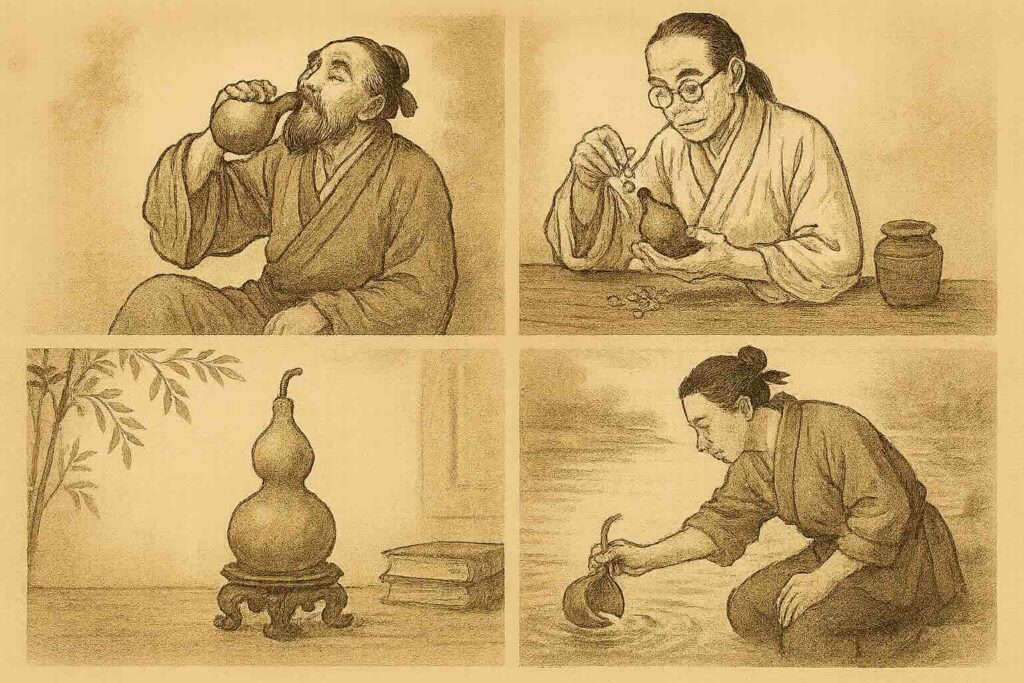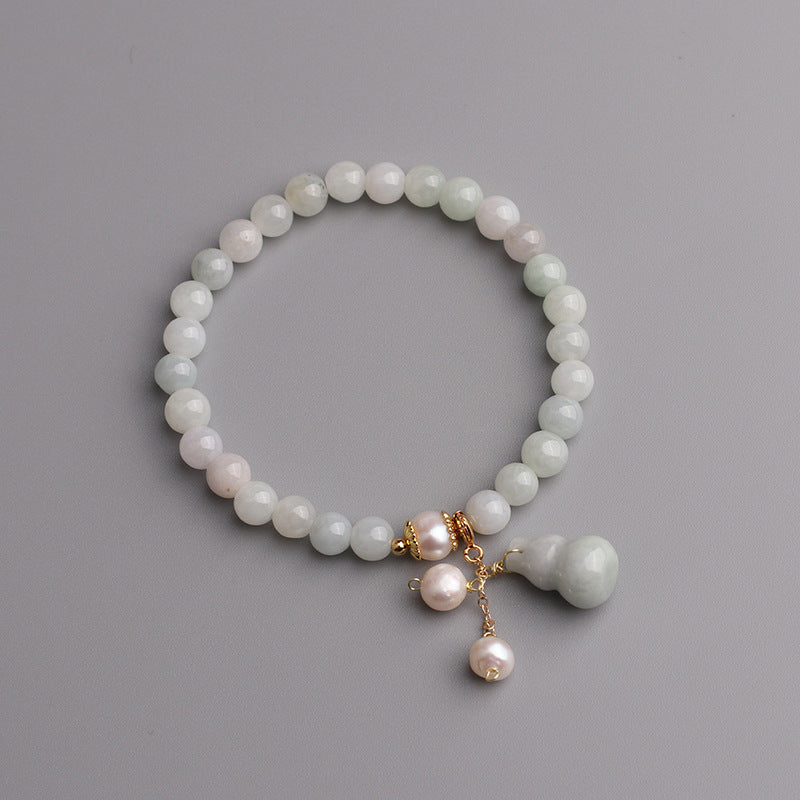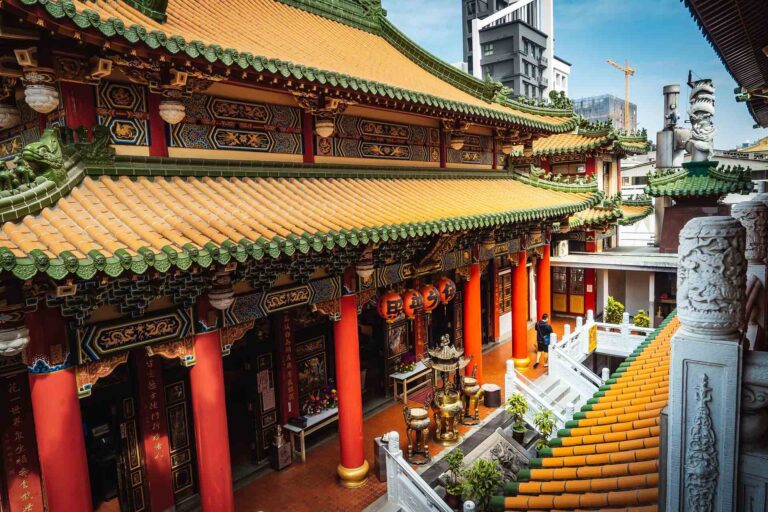Wu Lou: Discover the Powerful Sacred Gourd in Chinese Culture and Feng Shui
In this article
- 1 Introduction to Wu Lou and Its English Expressions
- 2 The Sacred Position of Wu Lou in Chinese Feng Shui
- 3 Historical Significance: From Ancient Container to Cultural Symbol
- 4 Symbolic Meanings and Cultural Significance
- 5 Modern Applications: Wu Lou in Contemporary Chinese Life
- 6 The Enduring Appeal of Wu Lou
- 7 Conclusion
Introduction to Wu Lou and Its English Expressions
Wu Lou (葫芦), one of the most revered symbols in Chinese culture, is known by several names in English. The most common translations include gourd, bottle gourd, calabash, and hulu. While “gourd” serves as the general term, “bottle gourd” specifically refers to the Lagenaria siceraria species that has been cultivated in China for thousands of years. The term “calabash” is often used interchangeably, though it can refer to various gourd species. Many English speakers familiar with Chinese culture simply use “hulu” or “wu lou,” preserving the original Chinese pronunciation.
The Sacred Position of Wu Lou in Chinese Feng Shui
In the ancient practice of Feng Shui, Wu Lou holds an exceptionally sacred position as one of the most powerful symbols for attracting positive energy and warding off negative influences. Feng Shui masters have revered the gourd for millennia, considering it a natural vessel capable of absorbing and transforming harmful chi (energy) into beneficial forces.
The gourd’s unique double-bulb shape is believed to represent the connection between heaven and earth, making it a powerful conduit for spiritual energy. In Feng Shui applications, Wu Lou is strategically placed in homes and offices to:
- Absorb negative energy and transform it into positive chi
- Promote health and longevity for family members
- Attract wealth and prosperity to the household
- Enhance career advancement and educational success
- Strengthen family bonds and relationships
Historical Significance: From Ancient Container to Cultural Symbol
Ancient Practical Applications
The reverence for Wu Lou stems from its profound practical importance in ancient Chinese civilization. Before the advent of modern containers, gourds served as essential vessels for daily life:
Storage Containers: Dried gourds provided waterproof, lightweight storage for grains, seeds, and valuable items. Their natural preservation properties made them ideal for long-term storage.
Wine Vessels: The most celebrated use of Wu Lou was as wine containers. The gourd’s natural shape and materials were perfect for fermenting and storing alcoholic beverages. Ancient Chinese poets and scholars often carried small gourd wine vessels, elevating the humble container to a symbol of scholarly refinement.
Water Dippers (Piao): When cut in half, gourds became “piao” (瓢) – essential water-carrying tools for common people. These halved gourds were used to draw water from wells, rivers, and storage vessels, making them indispensable in daily household activities.
Cultural Evolution
Over centuries, the practical importance of Wu Lou evolved into deep cultural symbolism. The transition from utility to spirituality reflects the Chinese philosophical approach of finding profound meaning in everyday objects.
 Symbolic Meanings and Cultural Significance
Symbolic Meanings and Cultural Significance
The Power of Homophonic Symbolism
The profound significance of Wu Lou in Chinese culture largely stems from the homophonic nature of the Chinese language. “Hulu” (葫芦) sounds remarkably similar to “fulu” (福禄), which means “fortune and prosperity.” This linguistic connection has elevated the gourd from a simple plant to a powerful symbol of good luck.
Fu (福) – Fortune and Blessings: Represents happiness, good luck, and divine blessings Lu (禄) – Prosperity and Official Rank: Symbolizes wealth, career success, and social status
Additional Symbolic Meanings
Beyond the fortune-prosperity connection, Wu Lou carries multiple layers of symbolism:
Longevity and Health: The gourd’s association with medicine and healing (many traditional Chinese medicines were stored in gourds) made it a symbol of health and long life.
Fertility and Abundance: The numerous seeds within a gourd represent fertility, abundant offspring, and continuous prosperity for future generations.
Protection and Security: The closed nature of the gourd symbolizes protection from evil spirits and negative influences.
Wisdom and Knowledge: Scholarly traditions of carrying gourd wine vessels connected Wu Lou with learning and intellectual achievement.
Modern Applications: Wu Lou in Contemporary Chinese Life
Home Decoration and Feng Shui Placement
Contemporary Chinese families continue the ancient tradition of incorporating Wu Lou into their living spaces, though modern applications have evolved significantly:
Decorative Ornaments: Artisans create beautiful Wu Lou replicas from various materials including jade, brass, crystal, and ceramic. These decorative pieces are strategically placed in:
- Living rooms to enhance family harmony
- Bedrooms to promote health and peaceful sleep
- Offices to attract career advancement
- Study areas to improve academic performance
Feng Shui Cures: Professional Feng Shui practitioners recommend specific Wu Lou placements to address various life challenges:
- Near the front door for overall protection
- In the health sector of the home for family wellness
- In the wealth corner to attract financial abundance
Personal Jewelry and Accessories
The tradition of carrying Wu Lou has transformed into modern jewelry and personal accessories:
Pendant Necklaces: Small Wu Lou pendants, often crafted from precious materials like gold or jade, are worn for personal protection and good luck.
Charm Bracelets: Wu Lou charms are popular additions to jewelry collections, allowing wearers to carry the symbol’s protective energy.
Keychains and Accessories: Modern interpretations include Wu Lou keychains, bag charms, and phone accessories, making the ancient symbol accessible to younger generations.
 The Enduring Appeal of Wu Lou
The Enduring Appeal of Wu Lou
Why Chinese Culture Values Wu Lou So Deeply
The enduring significance of Wu Lou in Chinese culture reflects several fundamental aspects of Chinese philosophy and values:
Practical Wisdom: The Chinese tradition of finding deep meaning in practical objects demonstrates the culture’s emphasis on wisdom and resourcefulness.
Harmony with Nature: Wu Lou represents the Chinese ideal of living in harmony with natural elements and finding spiritual significance in organic forms.
Intergenerational Continuity: The practice of passing down Wu Lou traditions from parents to children maintains cultural connections across generations.
Holistic Well-being: The symbol addresses multiple aspects of life – health, wealth, relationships, and spiritual protection – reflecting the Chinese approach to holistic living.
Global Recognition and Adoption
As Chinese culture gains international recognition, Wu Lou has found appreciation beyond Chinese communities. Feng Shui practitioners worldwide now recommend Wu Lou for clients seeking to improve various aspects of their lives, spreading this ancient wisdom to global audiences.
Conclusion
Wu Lou represents far more than a simple gourd – it embodies thousands of years of Chinese wisdom, practical ingenuity, and spiritual understanding. From its origins as an essential household container to its current status as a revered Feng Shui symbol, Wu Lou continues to play a significant role in Chinese culture.
Whether displayed as elegant home décor, worn as protective jewelry, or used in serious Feng Shui practice, Wu Lou remains a powerful symbol of fortune, prosperity, and positive energy. Its enduring popularity demonstrates how ancient wisdom can seamlessly integrate with modern life, providing comfort, hope, and spiritual connection for millions of people seeking to enhance their lives through the power of traditional Chinese symbolism.
The next time you encounter a Wu Lou symbol, remember that you’re observing not just a decorative object, but a piece of living cultural heritage that connects the practical wisdom of ancient China with the spiritual aspirations of people today.


 Symbolic Meanings and Cultural Significance
Symbolic Meanings and Cultural Significance





